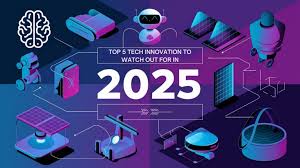Introduction:
In recent years, 5G technology has emerged as a revolutionary force, promising to redefine the way businesses operate. Its potential to deliver unparalleled speed, reliability, and connectivity is poised to reshape industries worldwide. Here’s a closer look at the impact and benefits of 5G technology for businesses.
1. Unmatched Connectivity and Speed:
One of the standout features of 5G technology is its incredible speed—up to 100 times faster than its predecessor, 4G. This enhanced speed allows businesses to upload, download, and transfer data at unprecedented rates, fostering seamless communication and collaboration. For industries relying on large-scale data processing, such as media production, healthcare, and financial services, 5G eliminates bottlenecks and improves efficiency.
2. Enhanced Remote Work Capabilities:
With remote work becoming a staple in today’s corporate landscape, 5G ensures reliable and fast internet connectivity for employees working from anywhere. It supports lag-free video conferencing, real-time collaboration, and uninterrupted access to cloud-based tools, enabling teams to maintain productivity regardless of location.
3. Revolutionizing IoT (Internet of Things):
5G acts as a catalyst for the Internet of Things (IoT), enabling faster and more efficient communication between connected devices. Businesses leveraging IoT can now deploy smart solutions in logistics, manufacturing, and retail. For example, warehouses can utilize smart sensors to monitor inventory in real time, while retailers can enhance customer experience through smart shelves and personalized promotions.
4. Accelerating Digital Transformation:
For businesses striving to stay competitive, digital transformation is no longer optional. 5G provides the backbone for advanced technologies like artificial intelligence (AI), machine learning (ML), augmented reality (AR), and virtual reality (VR). These technologies open doors to innovative applications such as predictive analytics, immersive training programs, and virtual customer experiences.
5. Cost Efficiency and Scalability:
By reducing latency and increasing operational efficiency, 5G helps businesses cut costs and scale operations more effectively. It supports edge computing, where data processing occurs closer to the source, reducing the need for extensive infrastructure investments and enabling businesses to scale without compromising performance.
6. Transforming Customer Engagement:
Customer expectations have evolved, and businesses must keep up. 5G technology facilitates hyper-personalized marketing strategies through real-time data collection and analysis. Faster connections also improve e-commerce platforms, allowing for smoother transactions and interactive customer experiences, such as virtual try-ons or live support.
7. Boosting Innovation Across Industries:
From healthcare to entertainment, 5G is driving innovation across diverse sectors. In healthcare, telemedicine and remote surgery become more viable with low latency and high-quality video streaming. The automotive industry benefits from advancements in autonomous vehicles, while the entertainment sector leverages 5G for high-definition live streaming and immersive AR/VR experiences.
Challenges to Consider:
While 5G offers numerous benefits, its adoption comes with challenges, such as infrastructure costs, cybersecurity concerns, and regulatory hurdles. Businesses must carefully plan their transition to ensure they reap the full benefits of this groundbreaking technology.
Conclusion:
The impact of 5G technology on businesses is transformative, enabling faster connectivity, enhanced productivity, and unprecedented innovation. By embracing 5G, companies can unlock new opportunities, stay ahead of competitors, and deliver superior value to their customers. As this technology continues to evolve, its full potential for businesses is yet to be realized, but one thing is certain—5G is shaping the future of commerce and industry.


